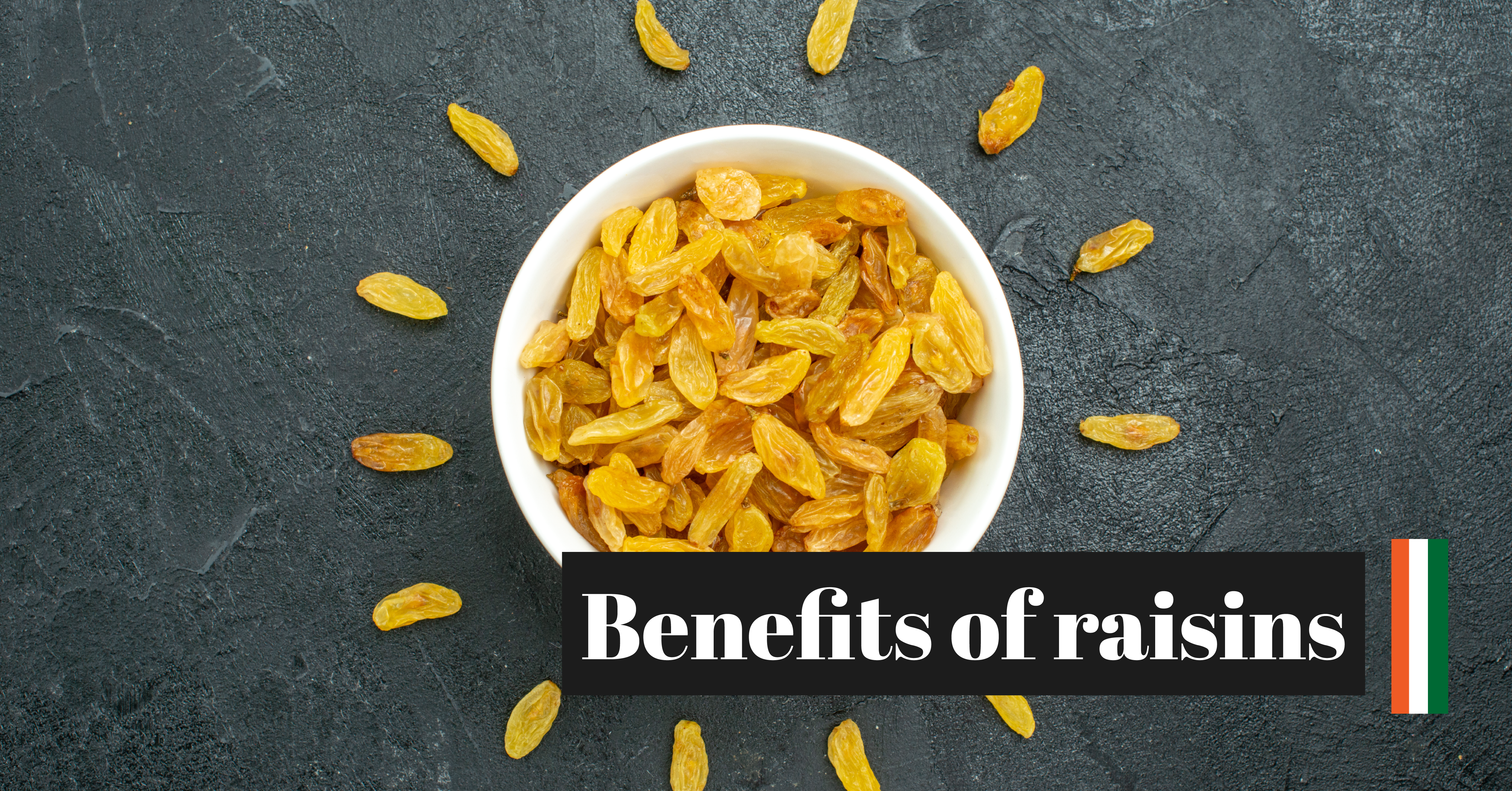Introduction:
Lots of people adore raisins as a snack because they are small pearls of sweetness. These dried grapes have been an essential part of human meals for ages, whether they are eaten on their own, incorporated into a salad, or sprinkled on your morning porridge. This blog post will discuss the intriguing journey of raisins from the vine to the table, their health advantages, and some inventive ways to include them in your regular meals..

The Journey from Grape to Raisin:
Let’s go back to the grapevine, the modest raisin’s original source, in order to really enjoy it. Drying grapes removes the water content while leaving the natural sugars and nutrients intact, which is how raisins are formed. Using this straightforward yet age-old technique, regular grapes become condensed, portable treats with a seductive taste.
The grape varietals Sultana, Muscat, and Thompson Seedless are most frequently used to produce raisins. After meticulous cultivation and harvesting, these grapes are either spread out in the sun or kept in dehydrators to dry out gradually. The end result was wonderful, black, and plump raisins that were ready to eat.
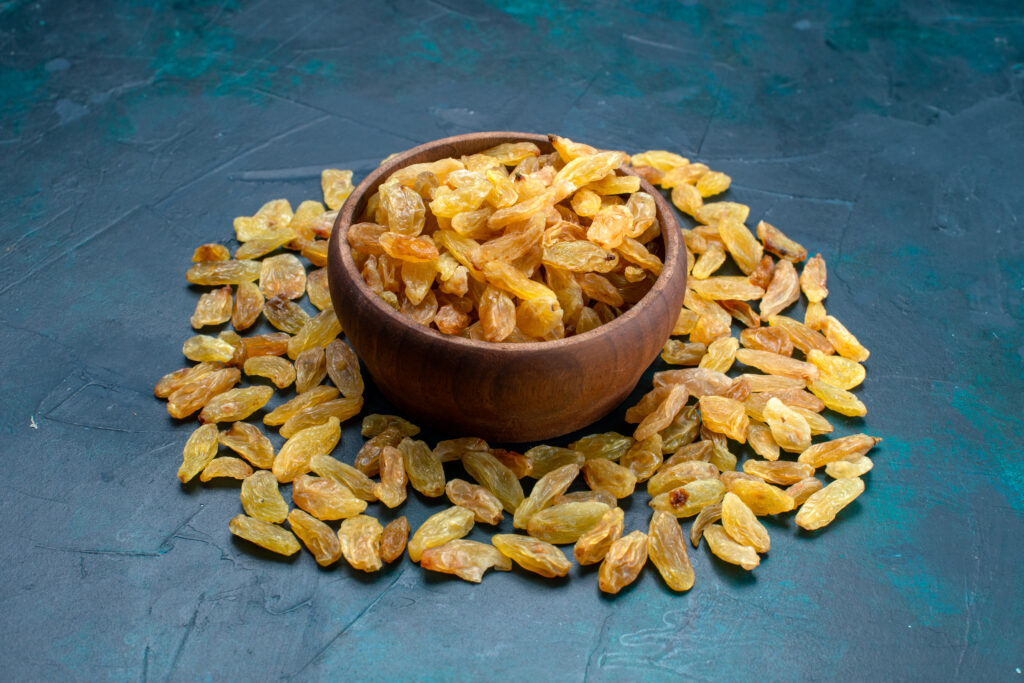
Nutritional Powerhouse:
Raisins are little, but they’re mighty in terms of nutrition. They are a great source of important vitamins and minerals, in addition to being a tasty and easy snack. Let’s examine these little delicacies’ nutritional makeup:
- Natural Sugars:Because they are a fantastic natural sweetener, raisins are a perfect substitute for refined sugar in a variety of dishes. Their natural sugars, such as fructose and glucose, give them their sweetness and give you a rapid energy boost without adding guilt.
- Fiber: Raisins are a good source of dietary fiber, despite their modest size. Fiber helps to maintain regular bowel movements and keeps constipation at bay, which is important for digestive health. You can increase your daily intake of fiber by including raisins in your diet.
- Antioxidants: Antioxidants such as flavonoids and phenolic compounds abound in raisins. By shielding the body’s cells from oxidative stress and inflammation, these antioxidants may lower the chance of developing chronic illnesses.
- Vitamins and Minerals:Potassium, iron, and B vitamins are just a few of the vitamins and minerals found in raisins. Iron is necessary to avoid anemia, potassium is necessary to keep the heart healthy, and B vitamins are important for energy metabolism.
- Heart Health: The fiber, potassium, and antioxidants in raisins contribute to heart health by helping to lower blood pressure, reduce cholesterol levels, and support overall cardiovascular function.
- Bone Health: Raisins are a source of calcium and boron, which are essential for maintaining strong and healthy bones.
- Blood Sugar Regulation: Despite their natural sugars, raisins have a low to moderate glycemic index, meaning they have a relatively minor impact on blood sugar levels when consumed in moderation.
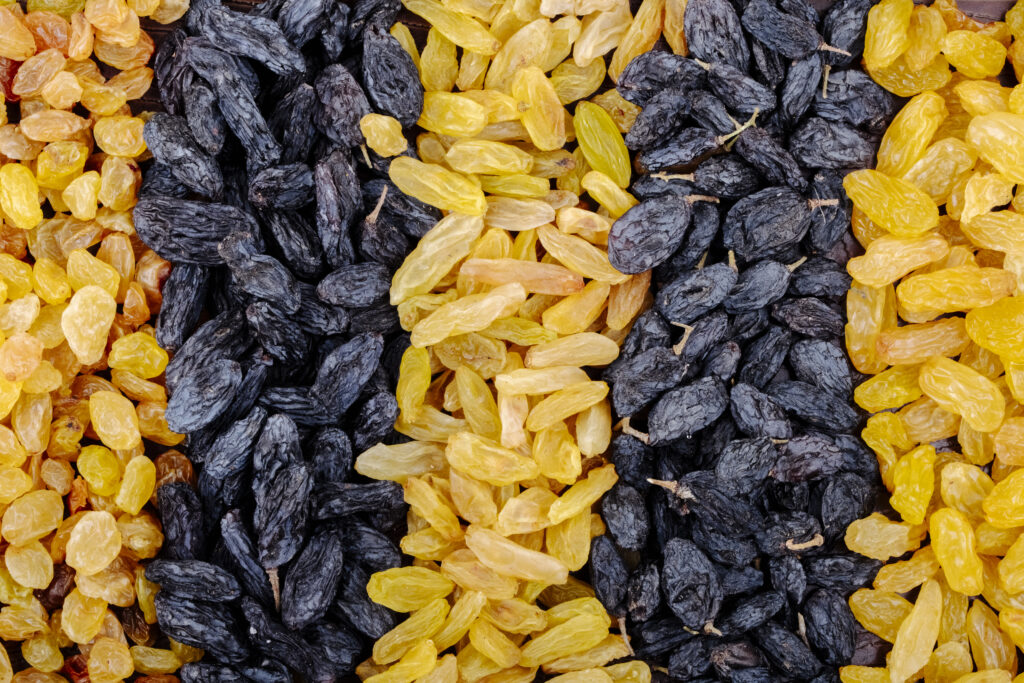
Creative Ways to Enjoy Raisins:
Now that the health advantages of raisins have been proven, let’s look at some inventive methods to include them in your regular meals:
- Trail Mix: For a filling and stimulating snack, make your own trail mix by combining raisins with almonds, seeds, and dark chocolate. This blend is ideal for pre-workout fuel or for on-the-go snacking.
- Oatmeal Upgrade: Change up your oatmeal in the morning by tossing in some raisins and a dash of cinnamon. This easy breakfast addition boosts flavor and naturally sweetens it.
- Salad Sweetener:Add some raisins to your preferred salads to add a bit of chewiness and sweetness. Greens, almonds, and a zesty vinaigrette go nicely with them to create a pleasant harmony of textures and flavors.
- Homemade Energy Bars:Make your own energy bars at home by mixing honey, oats, and nuts with raisins. You can manage the ingredients and adjust the flavor to your liking with this do-it-yourself method.
- Raisin-Studded Rice Pilaf: Add some raisins to your rice pilaf while it’s cooking to give it a gourmet touch. A delicious savory-sweet dish with a pleasing texture contrast is the end product.
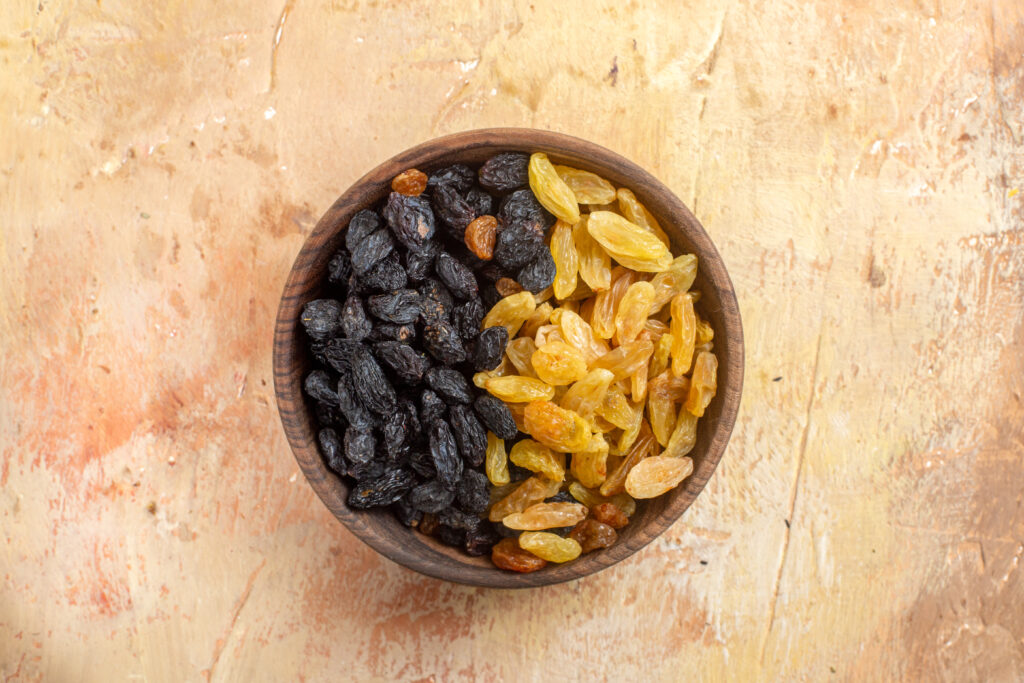
Several types of raisins,
- Dark Raisins: These are dried, large, dark-colored grapes, often of the variety Thompson Seedless. They have a dark brown to almost black color.
- Golden Raisins: These are made from large, green grapes like the Sultana variety. They are treated with sulfur dioxide to preserve their light color and are dried to a golden or amber hue.
- Sultanas: Sultanas are a type of raisin, usually lighter in color and larger than dark raisins. They come from the Sultana variety of grape and are often lighter in flavor and texture.
- Currants: Despite the name, currants in the context of raisins refer to small, black Corinth grapes that are dried. They are tiny, dark, and have a tangy flavor.
- Flame Raisins: These are dried red or black grapes. They are often plump and dark, similar to dark raisins, but may have a slightly different taste.
- Muscat Raisins: Made from Muscat grapes, these raisins are known for their sweet and floral flavor. They are often used in baking and cooking
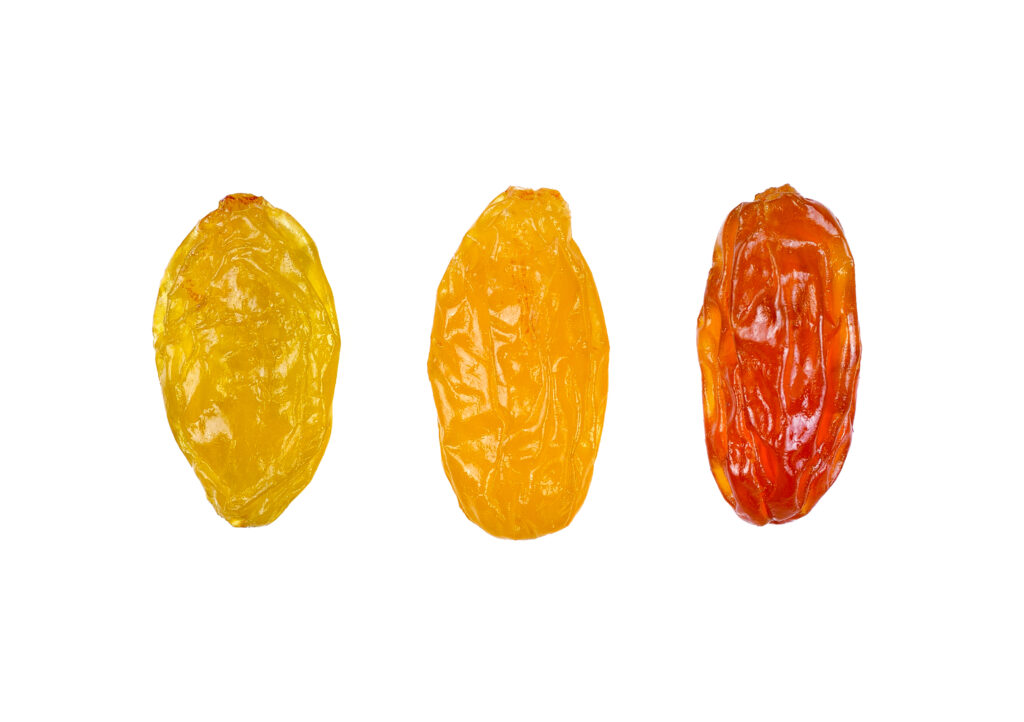
Conclusion:
In summary, raisins are a healthy complement to a well-balanced diet, in addition to being a delicious snack. Their transformation from grape to raisin is accomplished by a straightforward but revolutionary drying technique that maintains their inherent sweetness and healthful qualities. Raising your overall health may be pleasant and satisfying, and raisins are full of vitamins, minerals, and antioxidants.of textiles.
Try experimenting with the recommended recipes and incorporating raisins into different types of dishes to get creative with how you consume them. Raisins are a flexible ingredient that may improve the flavor and nutritional content of your dishes, whether you’re seeking a quick energy boost, a tasty addition to salads, or a handmade treat.
Thus, the next time you go for a handful of raisins, relish their sweet flavor and know that you’re giving your body nourishment from nature’s little powerhouse in addition to treating your taste buds.

